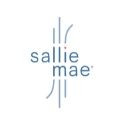What are Origination Loan Fees?
Here is an in-depth article about the Origination Loan Fee. Explore if all student loans have origination fees and if they can be negotiated?
Updated by Sharan Kumar on 27th October 2020
If you need some money at the moment be it to pay for school or related expenses, and you don't happen to have the cash for it? You will look for student loans, after exhausting your grants and scholarship options. There are certain formalities and protocols attached to taking these student loans. Federal student loans have origination fees, which most private student loans do not have.
What is an origination loan fee?
Origination loan fees are an additional amount attached to your student loans when you borrow them from a lender. This fee is charged for processing your student loans, in some cases for the customer service they provide, and more.
Origination fees are one of those factors that are added to the total cost of your loan. You will have to pay the borrower for processing your student loans. But in some cases, if these origination fees are high, it can be troublesome while paying back. This amount can vary with the type of loans you choose to take.
Table of contents
- Origination fees
- Calculation
- Deciding to pick the best student loans
- Interest rates and origination fees
- Are origination fees negotiable?
Let us figure out what it is?
In the simplest of terms, origination fees are the charges levied by the lender when processing a new loan application and its agreement. This basically covers the underwriting of the loan, pulling of a borrower's credit, and verifying their identity and documents among others for the lender.
The origination fee is pretty common among many types of loans from mortgage, a personal loan, federal student loans to a car loan. It usually is defined by a percentage of the total amount that is to be borrowed and which falls between 1-6%.
Many a time the lenders determine your origination fee based on your creditworthiness, loan amount, loan term, cosigner and, credit score. So if you have a less reliable or lower score (what is expected of or otherwise a bad credit history) the lender might assume that you are a risk. After which they will be inclined to charge you a higher origination fee. So keep your credit history on good terms and a good credit score to make sure you avoid paying a high origination fee.
 source - pexels.com
source - pexels.com
The process of calculating origination fees
For graduates and undergraduate student ideally the Direct Stafford loan (subsidized and unsubsidized) origination fees is 1.1% of the total amount. Whereas, for Parent PLUS loans it increases to 4.2%.
The process of an origination fee is complicated as it is usually determined after the loan has been approved, agreed upon by the borrower. The way origination fees are charged differs from lender to lender as the policies differ.
Example 1
Some lenders tend to club the origination fees with the loan balance or principal amount. If you have a loan amount of $15,000 with a 2% origination fee then the total balance to be paid by you as your principal will become $15,300.
So in this way, the origination fee of 300 dollars which is 2% of $15,000 is taken and added to your principal to make a total payable principal of $15,300.
Yet, others have a different approach and do so by deducting the origination fee from the disbursed funds.
Example 2
A loan balance of $20,000 with a 3% interest rate would end up being disbursed to you to be only $19,400. This is because the origination fee of 3% on $20,000 is $600 which is deducted from the disbursed amount and the remaining $19,400 sent to you.
Occasionally some lenders will outright ask you to pay the origination fee in cash instead of deducting it from the loan amount, but this is most often seen in mortgage loans where this amount is usually included in the buyer's closing costs. Whereas, in federal student loans the origination fees are deducted and then the student loan is disbursed to you.
Although it is less often borrowers should be on the lookout for advance-fee scams where they guarantee you a loan even with a bad credit history and charge you with a high origination fee or have hidden costs which could be trouble in the future.
The borrows are warned about these scams from the federal trade commission and are asked to be diligent and research the lenders and the fees they charge to avoid being scammed by advance-fee loans.
How to pick student loans considering origination fees?
Since the origination fee is added to your total loan amount, you will have to keep in mind the total cost while you decide to borrow.
-
While comparing different loans for interest rates and their terms, you will also have to keep in mind to have a look at their origination fees to make sure you're getting the best deal.
-
A loan without any origination fees could always be cheaper than one with it. And it is definitely possible to find some loan types or lenders who would be offering a loan without any origination fees.
-
If you decide to take a personal loan with no fee, you should consider a lender that doesn't charge it, such as So-fi or Citizens Bank, if you can qualify for either one, you could just possibly save a lot of money.
Although no fee lenders sound great, most of the time they'll find ways to cover these extra charges, so beware.

source - pexels.com
Some lenders tend to fix a higher interest rate to cover the costs of not charging an origination fee so keep a lookout on the APR being levied on your loan, and make sure that you don't end up paying a lot more than an origination fee would have costed you.
Interest rates and the origination fees
To find the best deal and the loan that gives you the best interest rates and origination fees you'll have to do some serious research. You will have to figure out what the costs are? and have to check the offers from different loan companies and then compare the total costs of the loan and come to a conclusion.
Most lenders these days offer soft credit pulls that check your creditworthiness and help you with a good loan offer. So go for lenders that look promising and also apply for pre-approval.
After getting a couple of offers in your hand. Sit down and have a look at the different APRs of the loans having similar terms, their origination fees, and their estimates monthly payments.
While you are comparing the various APRs from the different loans also check if the origination fees are included. Depending on how the loan fee is charged the change might or might not be reflected in the APR.
If everything is included under the APR, you should be able to do a side-by-side comparison of all these loans and see which provides the least interest rates.
Total loan costs
Keep in mind you will have to compare the origination fees if they aren't included in the APR. Depending on how the different terms are offered -- you have to compare the interest rates with the origination fees to see which is profitable.
Will interest rates or origination fees, cost you more?
Look for what you need, because you might not want to pay an origination fee. But if this gets you paying higher monthly payments it isn't really productive. So decide what you're requirements are?
If it is okay you afford high monthly payments then the origination fee can be foregone. If you want to have low monthly payments with a less interest rate -- then make a loan with an origination fee that has low monthly payments to satisfy your needs.
Also, you can choose to pay more every month to discontinue to not pay a lot of interest at the end of the loan term.
 source - pexels.com
source - pexels.com
If you have a credit score on the lesser side and all your loans that qualify have an origination fee. Then many lenders with less strict credit eligibility will also charge an origination fee, but this can't be avoided since you definitely need the loan.
You may consider the origination fee if it does gives you the loan finances you are looking for. The best way to figure this out is to have good research on all your options and take time in choosing which loan and lender might suit you best.
Worried about college fees? Here is a list of the best student loans to help you!
Are origination fees negotiable?
Average origination fees across all lenders are 1% to 6% which may rise to 8%. It is always important to ask your lender the following questions before you borrow your student loans
-
Interest rates and origination fees
-
Can the origination fees be reduced?
-
The options of repaying it?
-
The amount of origination fees (if there is any)
-
Does the total loan amount include origination fees to it?
-
Can the origination fees be reduced?
-
If there are any other charges included?
While most lenders do not provide a reduction in origination fees, you can still ask if they can assist you by reducing these charges. Chances are that if you have good credit scores, stable income, and borrowed a larger loan amount the lender might decrease the origination fees for you. You can always shop for the best student loans with the best deals if you do enough research before concluding.
| Minumum Credit Score | Apply in as little as | Variable APR | Fixed APR | ||
|---|---|---|---|---|---|
 | Not Available | 15 minutes or less | 2.95 | 4.74 | View disclosures |
 | 620 | 2 minutes | 5.38%-16.99%1 | 4.43%-16.99%1 | View disclosures |
 | Not Available | 15 minutes | 1.13% - 11.23%¹ (with autopay) | 3.50% - 12.60%¹ (with autopay) | View disclosures |



93.jpg)


28.jpg)
